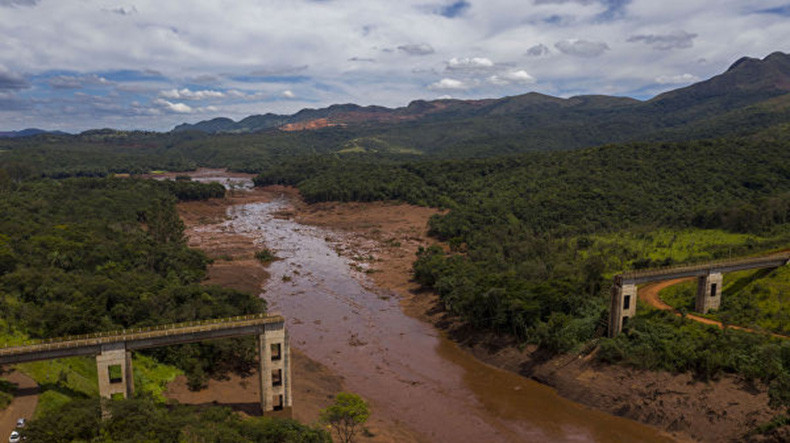
Brazil dam collapse toll rises to 84
The death toll from the collapse of a Brazilian dam rose to 84 on Tuesday as mining giant Vale announced that moves to dismantle similar structures would hit production, AFP reports.
Brazilian authorities are stepping up their probe of Vale, with five engineers involved in the operating licenses and the last inspection of the dam arrested on prosecutors' orders in the state of Minas Gerais, where the disaster occurred Friday at one of the firm's mines.
Flavio Godinho, Civil Defence spokesman in Minas Gerais, said the death toll had increased from 65 to 84, while the number of missing fell from 292 to 276.
Shares in Vale — the world's biggest iron ore miner — meanwhile ticked up nearly two percent in Sao Paulo, still far from recovering from a 24-percent wipeout suffered on Monday.
The company said it will freeze operations around 10 dams in Brazil to dismantle structures such as the one that resulted in the Friday disaster — a move that will reduce annual iron ore production by 10 percent or 40 million tons.
The dam collapse at the Vale mine near the town of Brumadinho occurred three years after a similar disaster at another one of its sights in the same region.
Brazilian media speculated that Vale's board and top executives might be replaced. The overwhelming majority of the dead and missing were workers at the mine.
Authorities have ordered $3 billion in Vale assets be frozen to pay for fines, compensation and employee salaries to families.
The search for bodies was ongoing Tuesday, with a team of Israeli soldiers joining Brazilian crews who have been laboriously probing for days the expanse of mud released by the dam.
With a dozen kilometers (eight miles) of mud to carefully scour, the operation has proceeded slowly, barely denting the long list of the missing.
No survivors have been found since Saturday, only bodies.
The toxicity of the mineral-laced sludge was not yet known. But an indigenous community downstream complained that fish it relies on for its livelihood were dying.
Brazil's authorities feared pollution from the mine waste could reach hydro-electric power plants between early and mid-February.
The environmental group WWF said that a forest area "equivalent to 125 football fields" had been lost, and it was still too early to know the full ecological scope of the disaster.
Newsfeed
Videos






























